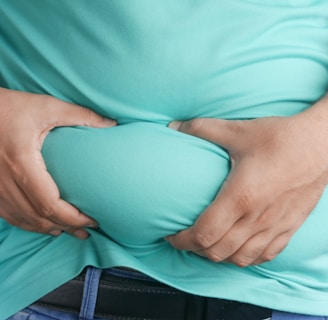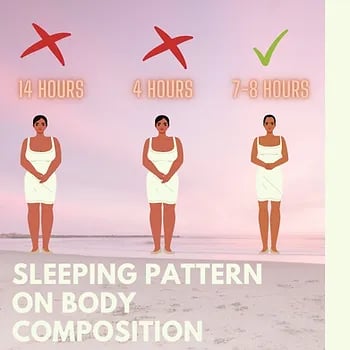Is Fast Weight Loss Healthy? Find Out Now!
Discover the truth about healthy weight loss and whether losing weight fast is safe. Explore healthy ways to lose weight effectively and sustainably.
5/9/20233 min read
Losing weight is good for your body and mental health, it can regulate your diabetes, hypertension, etc., and improve your mood.
## The Health Implications of Rapid Weight Loss
Is it safe to lose weight quickly? Unfortunately, no. While it may be tempting to rush the process, quick fixes are rarely effective or sustainable. Rapid weight loss can lead to unhealthy outcomes, often resulting in a rebound effect that causes you to gain back even more weight than you initially lost. The key to success is taking your time and making gradual, healthy changes to your lifestyle.
Crash diets and extreme calorie restriction can cause a number of health problems, including nutrient deficiencies, fatigue, and mood swings. Losing weight too quickly can also put undue stress on your body and increase your risk for gallstones, dehydration, and muscle loss. In addition, rapid weight loss can disrupt your metabolism and lead to a slower rate of weight loss in the long run.
It's important to remember that weight loss is a journey, not a race. Instead of focusing on quick fixes, aim to make sustainable changes to your diet and exercise routine. This could include incorporating more fruits and vegetables, cutting back on processed foods, and finding an exercise routine that you enjoy. By taking a gradual approach to weight loss, you'll be more likely to see lasting results and improve your overall health and well-being.
Achieving and Sustaining Weight Loss in a Healthy Manner
Finding the right way to lose weight and maintain it is crucial. Allow yourself enough time to adjust to the changes you want to create in your body. Losing more than three or four kilos per month can do more harm than good, as the right amount varies depending on gender, age, and weight.
Numerous studies have shown that vigorous exercise and a healthy diet are the most effective and sustainable ways to maintain weight loss. While reducing meal portions can be challenging and leave you feeling hungry throughout the day, your body needs time to adapt. Alternatively, consider increasing your physical activity if you are unwilling to reduce your meals (assuming you are eating healthy foods, of course!). Additionally, practicing meditation or finding a hobby can help distract your mind during this stressful period.
The Science of Habits: Changing Your Life in 21 Days
Studies have found that it can take up to three weeks to form a new habit. If you can maintain this habit for 90 days or more, it may become a permanent part of your routine. Begin by incorporating a daily 30-minute walk, at least six times a week.
If you're not physically active, walking can provide significant benefits. Gradually increase the duration and incorporate dietary changes. Additionally, it's important to switch up your exercise routine and eating habits every three months. This allows your body to adapt to new conditions and rejuvenate.
There are several ways to achieve your fitness goals, and one of them is by tracking your food. By recording all your meals on MyFitnessPal for a month, you can become more aware of the food you consume and how many calories you are taking in. Although it may be time-consuming at first, it gradually becomes easier, and even a small piece of food can make a significant difference. For instance, a single scoop of peanut butter contains 94 calories, which is a lot for someone who only requires 800 calories per day.
In addition to tracking your food, it's crucial to prioritize sleep. Eating well, exercising regularly, and getting enough sleep are all key components of a healthy lifestyle. When you incorporate all three, you are setting yourself up for success. So, invest in your future by eating healthy, exercising regularly, and getting the proper amount of sleep each night.
#personaltrainer #harmonyfitness #loseweightforgood #workoutforyourself#love #trainer #nutrition #strength #fitnessjourney #fitnessaddict #wellness #workoutmotivation #bhfyp #fitnessgirl #goals #pt #personaltraineronline #strengthtraining #fitlife #treino #abs #dieta #saude #functionaltraining #healthyaging
REFERENCES
Aronne, L. J., Hall, K. D., M. Jakicic, J., Leibel, R. L., Lowe, M. R., Rosenbaum, M., & Klein, S. (2021). Describing the weight‐reduced state: physiology, behavior, and interventions. Obesity, 29, S9-S24.
Hahn, S. L., Linxwiler, A. N., Huynh, T., Rose, K. L., Bauer, K. W., & Sonneville, K. R. (2021). Impacts of dietary self-monitoring via MyFitnessPal to undergraduate women: A qualitative study. Body Image, 39, 221-226.
https://health.clevelandclinic.org/risks-of-losing-weight-too-fast/








